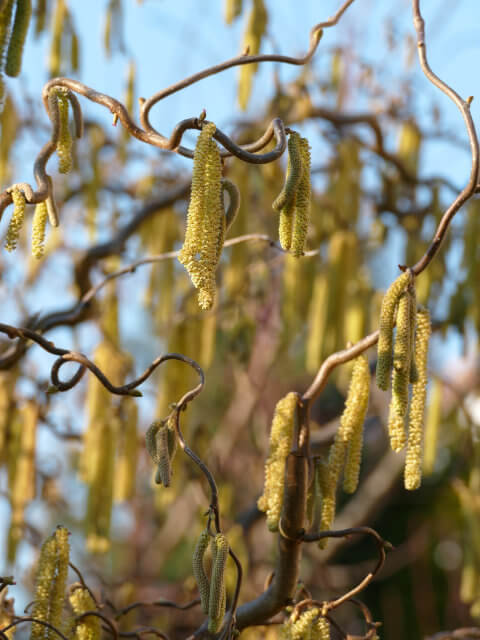Birch Pollen Allergy
Birch trees release a fine powder called pollen to grow new trees. This is called anemophilous pollination because the wind does all the work. During the peak pollination season, these tiny grains can trigger allergic rhinitis (seasonal hay fever) in many people.
Birch trees are known for their white bark and are often seen in forests and parks. The pollen can cause allergic reactions in some people.
It is similar to other types of pollen, like grass pollen and ragweed pollen, which can also make people sneeze and feel itchy.

Symptoms of a Birch Pollen Allergy
If you have a birch pollen allergy, you might have these symptoms:
- Sneezing
- Runny or stuffy nose
- Itchy or watery eyes
- Itchy throat or ears
- Coughing
These symptoms usually start in the spring when birch trees release their pollen. They can be bothersome, especially if you are outside a lot.
Where is Birch Pollen Found?
Birch pollen is found in areas with birch trees. You can find birch trees in many parts of the world, including North America, Europe, and Asia. They grow in forests, parks, and even in some yards.
Birch trees are common in cooler climates. If you live in a place with lots of birch trees, you are more likely to come into contact with their pollen. During the spring, the air can be filled with pollen, which may travel to different places.
In Europe, cities like Berlin, Stockholm, Oslo, and Warsaw often experience high levels of birch pollen during the season. People in these cities may notice stronger symptoms due to the higher concentration of pollen.
When Is Birch Pollen Season?
Birch pollen season usually starts in early spring and can last until late spring. The exact timing can vary depending on where you live. In some areas, birch pollen might be present from March to June.
The pollen count can be higher on warm, sunny days and lower on rainy days. Checking local pollen forecasts can help you know when birch pollen levels are high. This can help you prepare and avoid the worst symptoms.
Treating a Birch Pollen Allergy
There are several ways to treat a birch pollen allergy:
- Avoiding Pollen: Try to stay indoors on days with high pollen counts. Keep windows closed to prevent pollen from entering your home.
- Medication: Over-the-counter antihistamines can help with symptoms. Nasal sprays and eye drops can also reduce itchiness and congestion.
- Nasal Rinses: Rinsing your nose with saline solution can help clear out pollen.
- Consult a Doctor: If symptoms are severe, a doctor might suggest allergy shots or other treatments. They can provide specific advice and medication to help manage your allergies.
Understanding birch pollen and how it affects you can make dealing with allergies easier. Keeping track of when birch pollen is high and using treatments can help you feel better during allergy season.
Check Pollen Levels for Birch Pollen
See the current birch pollen levels across Europe on our Pollen Map (select "birch" on the map options).
You can also sign up for pollen alerts to be notified of high birch pollen days in your city.